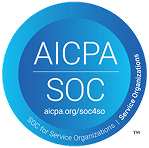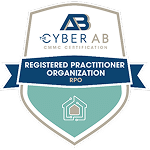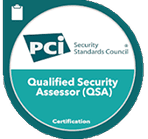When it comes to protecting privacy and securing data and other sensitive information, healthcare organizations are some of the most scrutinized. They face a huge number of federal regulations, compliance standards and state laws, including HIPAA, HITECH, ISO 27001, PCI DSS, NIST, COBIT, and FTC.
For third-party healthcare partners, this makes proving trustworthiness with sensitive data and Protected Health Information (PHI) all the more important. In fact, a growing number of big-name healthcare organizations are requiring business associates to obtain HITRUST CSF certification in order to demonstrate effective security and privacy practices that keep up with industry requirements.
This means certification is no longer an optional way to stand out from the crowd. Staying on-par with ever-changing regulations can seem overwhelming, but HITRUST has paved the way for simplification.
What is the HITRUST CSF?
The HITRUST Common Security Framework (CSF) is a certifiable framework, developed by healthcare, technology, and information security experts, that gives healthcare organizations and their business partners a comprehensive approach to creating, accessing, storing and exchanging regulated data, yet can be customized based on size, type, and specific needs.
HITRUST CSF leverages best-in-class risk-management and security controls programs from around the world in order to meet the federal, state and business requirements required of healthcare organizations, making it one of the most widely-used and dynamic certifications in the healthcare industry.
Why is it important?
The HITRUST CSF is one of the most commonly accepted third-party certifications for healthcare third-party service providers in the world, not only because it’s so comprehensive, but also because it’s a dynamic certification that constantly evolves based on new laws, regulations and user input.
The assessment looks at an organization’s security controls and compliance programs to both validate compliance and detect gaps, weaknesses, and inefficiencies. Like other assessment programs, certification is available on a number of levels, from online self-assessments that quickly assess security controls and provide an understanding of risk exposure to partnering with CSF Assessors in order to receive help from experienced, credentialed professionals under the CSF Assurance Program.
What is the HITRUST CSF Assurance Program?
Meeting healthcare regulations and compliance standards is a complicated, ever-evolving challenge. The CSF Assurance Program is designed to meet these unique needs by providing healthcare organizations and their business associates with a common approach to security-assessment management. The benefits of the program include:
Reduced costs and complexity. The CSF Assurance Program streamlines compliance management for both the healthcare organization and its associates. Business associates can reap a number of reports from just one assessment, and healthcare organizations benefit from a more complete assessment process.
Managed risk. Organizations gain valuable insight into both their internal and third-party risks. And, by allowing the assessor to focus on new requirements and audits, the organization is free to focus on taking a proactive approach to their security management.
Simplified compliance. Because the HITRUST CSF is built upon a host of regulatory stakeholders, the assessment often provides across-the-board compliance.
It also satisfies the requirement for healthcare business associates to achieve HITRUST CSF compliance, provides a competitive advantage, and establishes a best-in-class security framework.
Learn More About Becoming HITRUST Compliant
As an authorized HITRUST CSF Assessor for Healthcare, 360 Advanced is an excellent resource for assessing compliance with security-control requirements and documenting corrective action plans for healthcare organizations of all sizes and complexities.
For more details about how HITRUST can benefit your healthcare services organization, contact us today.








